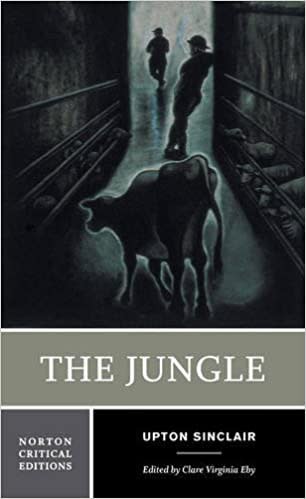The Jungle's influence has been extraordinary for a literary work. Upton Sinclair's 1906 landmark novel is widely credited with awakening the public fury that led to the passage of the Pure Food and Drug Act (1906), a watershed in consumer protection and government legislation.
"Contexts and Backgrounds" provides readers with an understanding of The Jungle's disparate social, historical, political, and literary dimensions. Included are autobiographical selections by the author; contemporary perspectives on the meatpacking industry, including writings by Theodore Dreiser, Adolphe Smith, and J. Ogden Armour; and commentary on the living conditions of immigrant workers. Historical studies by Jimmy Skaggs, Rick Halpern, James Barrett, Robert M. Crunden, John Braeman, William Cronon, and Eric Schlosser address the central issues: slaughterhouse abuses, protectionism and The Beef Trust, muckraking, Progressivism, and consumer rights.
"Criticism" collects eight provocative readings of The Jungle as a literary text, as a historical document in its own right, as a contribution to Progressive-era muckraking, and as an important work in urban, economic, and labor history. Contributions include Jack London, Edward Clark Marsh, Winston Spencer Churchill, Walter Rideout, June Howard, Scott Derrick, Michael Brewster Folsom, and Christopher P. Wilson.
